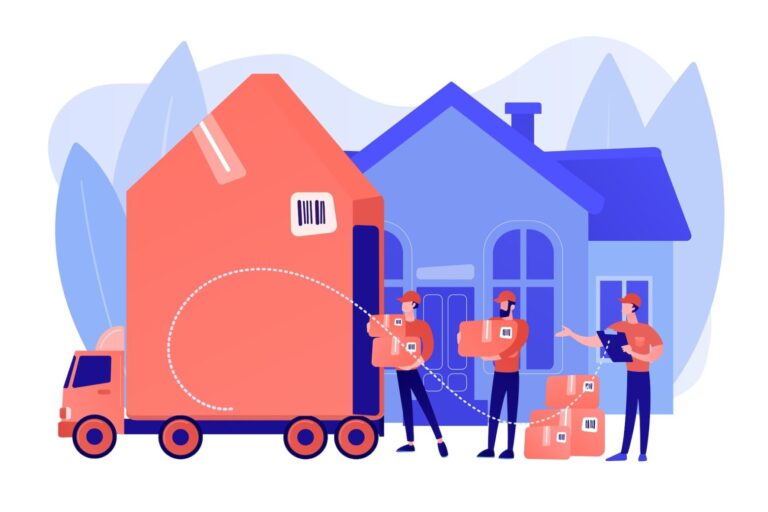Table of Contents
Maintenance requests occupy the top positions in the ranking of most common tenant complaints. No matter how much time and effort you dedicate to management and customer service, issues will always pop up here and there. The huge number of maintenance tickets overwhelms support agents, increases the amount of time customers have to wait, irritates and frustrates them, and, as a result, you end up losing money. Implementing ticket management systems and structuring all the requests efficiently can help businesses avoid customer irritation and automatize the process in general.
In this article, we are going to tackle the main issues connected to ticket execution control and tenant-landlord relationships through ticketing management systems and uncover useful advice on how to develop and implement such systems into your property business processes.

What are ticketing management systems?
Ticketing management systems present a kind of help-desk software that allows tenants to accept, sort, process, track and solve tenant issues as soon as possible after the requests are submitted by the tenants for review. This system allows us to categorize and prioritize the requests as they are created automatically. There is also an opportunity to track the request status and assess the service efficiency. Moreover, ticketing management systems can also serve an analytical function as well, enabling one to measure team performance metrics such as resolution time, response time, and first-reply time. You can also track the frequency of the issues and uncover the most common issues. Ticket execution control is also among the key functions.

How does ticketing management software work?
A ticket management system allows the creation of a unique ticket for each tenant with a specific request. It records interactions related to this specific request. All the details are shared among the parties able to fix the issue and the tenant, serving as a reference point for all parties involved.
As soon as the ticket is submitted, it can be sorted out depending on the nature of the issues and its emergency status. You can prioritize it, escalate or pass it to another department. After the issue is resolved, it is closed out.
More about ticket escalation
Tenant ticket escalation is moving the real estate request ticket to the next level agent, providing a higher, more sophisticated level of support. The tenant request is escalated in case the issue cannot be solved by the person responsible at the ground level. It guarantees quicker and more efficient resolution.
The tenant ticket management systems can send notifications, you can also close the issue after it is resolved. The issues can also be re-opened in case someone may have additional follow-up questions. Tenants can submit requests via email or mobile.
In the modern tech market, there is an AI-enhanced ticket management platform that manages tenant requests, and people don’t even realize that they are talking to a machine.
The Jack automation technologies team has launched the revolutionary platform that changed the way landlords manage various tenant-related issues. Tenants could simply use the portal, without even having to download the app. It even interacts with Alexa. For every single request that comes in, it pulls the data and establishes connection with the user. However, this platform is based on the principle of the request management system. It is a great example of how far technology can go, and the sky’s the limit.

Props Tech – a handy property management instrument by Altamira
Altamira have created a unique property management solution that also serves as a way to manage tenants and owners cooperation. The customer turned to us to solve the problem of inefficient property management. Since tenants have to call the owner whenever they face problems connected to the property.
Managers or landlords received an instrument to monitor their properties from the well-designed admin panel and efficiently manage tenants’ requests. The tool enables landlords to optimize the business process of managing complaints, issues, payments, and communication.
Properties and benefits of ticket execution control software
Centralized database
A single platform enables a landlord or manager to gather and track the status of all requests. You can easily find and access the needed information to resolve issues and instantly connect with any of the request-related participants.
Workflow automation
With the help of AI and ML technologies you can automate the flow of requests and improve ticket execution control. Simply move the tenant request to the necessary person and change the status of request.
Operate remotely efficiently
Again, thanks to automation, the time and efforts spent on solving the issue. Thus, the team operates more efficiently. Easily access reports and keep all the issues on a schedule.
Timely and amazing service
ticket management systems increase customer satisfaction, providing quick and efficient issue resolution.
The ticket management system is a kind of platform or working environment for team members that also allows tenants to interact. You get a database that allows you to unify everything in a single place, generate reports, and cope with system overloads.
Main challenges that can arise:
- Ticketing system overload;
- Appropriate distribution of tasks between the team members;
- Adequate prioritization of tasks.

Must-have features to include in the ticket management systems
Young businesses at the beginning of their path often feel as though they can handle all tenant requests that may come their way. However, with scaling up comes another difficulty—coping with the huge wave of tenant requests and issues arising, as well as ticket execution control challenges. Advanced ticket management systems will allow you to stay on top of all requests and solve all the issues as fast as possible. Here is a list of must-have features that should be available in an efficient ticket management system.
Diverse contact channels
Offer diverse contact channels for tracking and managing requests. These can include live chat, phones, and emails.
Customized software
The system should be fully integrated with your brand.
Workflow automation
Reduce the people’s interference with automation, i.e. stem their involvement in completing repetitive tasks.
Ticket categories and tags
It will allow users to rapidly understand the issue’s status, the type of requests, the agent responsible for solving the issue, etc.
Reporting system
It will allow users to easily uncover the pain points and improve them.
Unique customer experience
User-friendly interface, easy-to-navigate dashboard, and interactive app design for more engagement and convenient usage.
Alerts and notifications
Easily notify about the status of the requests or any changes introduced to the issue. Keep the agents involved informed.
Problem tracking
The ability to label each request according to the severity of the particular issue to automatically prioritize the particular case among other cases.
Communication channels
Integrate the option to communicate to speed up the resolution process, easily reaching the needed agents.
Auto-assign the request
Send a ticket to the right person by automatically setting the workflow based on the category and place of living.
Task scheduling
Create tasks to complete the request on time.
Granting access
Allow the tenant to specify time and date of desired entry into their apartment.
Best practices to use ticket management systems efficiently
The best practices presented by the Altamira team.
- User-friendly UX/UI designs. The system should be easy to navigate and allow quick access to create requests and track progress.
- Prioritizing system. Establish the scheduling and prioritizing option so that emergency issues can be solved immediately while the less severe issues are solved within the shortest time possible.
- Spot and document similar issues. Make sure to document all the improvement and fixing details so that you can quickly access them.
- Track the metrics and KPIs. Metrics like Mean Time To Resolution (MTTR), tickets per asset, and cost per ticket enable the measurement of the real service cost. Thus, implement regular report generation.
- Create a single knowledge base. This will enable the tenants to access the already available cases and probably find resolutions to their requests, thus saving the landlords time and costs.
- Track the customer’s feedback. Focus on the customer and the quality of service and experience you offer.

How to implement a ticket management system
Years ago, all these stages were done manually, and many reports were lost. Customer service was low-quality, and customer satisfaction rates were virtually zero. Thanks to digitalization and recent technological advances, today, property managers provide their customers with quick and effective responses. Moreover, the system is adjusted based on the nature and severity of the problem at hand.
When launching the development of ticket management systems, it is important to consider the tenant’s needs and align them with your business workflow. Follow these tips to easily implement a ticket management system into your business operations:
- Define the exact business goals. Try to single out the special business objectives for why you need to implement the ticket management system, such as increasing a separate metric or shortening the time for resolving issues.
- Dive into the tenant’s pain points and expectations. It will allow you to offer an efficient solution and remove the customer’s concerns.
- Settle on the rules to automate the workflow. Tune the automated ticket assignment, establish the timeframes for various types of tasks, and define the limits and further actions in case the limits are overreached.
- Clarify the SLA (Service Level Agreements) rules, which will guarantee that agents will adhere to all requirements while managing the issues.
- Create a shared knowledge base with tenants in mind. This will decrease the number of similar requests and allow tenants to find solutions to their problems on their own.
- Track and improve the key metrics. Schedule the automated reports.
However, to create a ticket management system that fully meets your business objectives, you need to find and hire a team of software developers. These advanced professionals will conduct market research, analyze your business workflow, detect the main sticking points and offer individualized solutions. Custom software development is the best option in case you expect to get quick and efficient results and considerably improve ticket management.
Create your custom ticketing management system with Altamira
Altamira is a software development company with locations in Europe and the UK. We provide custom software development services, offering smoothly operating software that will automate your business workflow and increase customer satisfaction. We have extensive practical experience developing property management software. High customer retention rates and satisfaction rates are the best proof of our expertise and dedicated attitude.
Services we offer
Our team of wonderful experts will build a custom tenant request management system oriented around your individual business objectives and take into account your specific demands. Among the services we offer are:
- Discovery stage to define and support your individual business needs;
- MVP development to quickly launch the system, test and gather the user’s feedback;
- Creation of unique design offering interactive user experience;
- Agile development practices implementation;
- Testing the software from the preliminary stages of development;
- Maintenance and support through all project stages, from development planning and outset to deployment.
Our clients choose us since we offer fast time to market and great expertise in delivering software for businesses in the real estate sector. We are aware of the customers’ concerns and pain points. That’s why we offer to trace the progress of project development and have a fully transparent approach to development cooperation.
To develop a tenant ticketing system, you will need a team of developers, business analysts, QA specialists, designers, and project managers. The cost of development will be approximately 50K USD per month, and it will generally take a minimum of 4-6 months.
To sum up
A ticketing system actually simplifies the interaction between the landlord and tenant. Multifunctional ticketing systems allow quick creation of requests, replacing emails and reports. They allow building an efficient chain of communication between tenants and landlords so that the issue is solved within the shortest time possible. Property management systems change the game. For property managers organizing and managing the requests, the main headaches are the requests that should come to the right place and their requirements for timely processing and completion.




